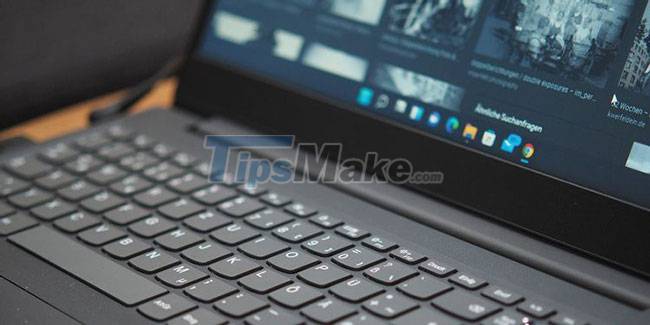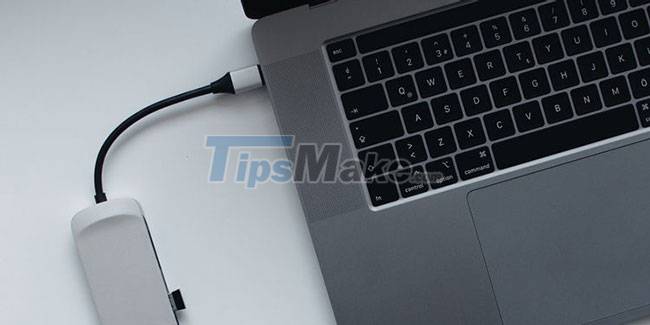Does Windows 11 have a 32-bit version?
Windows 11 has been out for a few months and so far it's a worthy successor to Windows 10 - despite the fact that Microsoft has previously stated that Windows 10 will be the final version of Windows. So does Windows 11 support 32-bit systems? Let's find the answer through the following article!
Windows 11 does not have 32-bit support

Microsoft's new operating system is the first without a 32-bit version. If you want to use the latest version of Windows, you'll need a 64-bit system. This does not mean that 32-bit programs are no longer supported, as Windows 11 still has a compatibility layer for all x86 programs still in use today. But that means you can't install Windows 11 on a 32-bit PC.
32-bit support was first added to Windows in 1993 with Windows NT 3.1, while 64-bit support first came to a special edition of Windows XP called "Windows XP Professional x64 Edition" , released in 2005, 4 years after Windows XP was first released.
It's been a long time, but so far, all versions of Windows, from Vista to 10, have been released in both 32-bit and 64-bit versions. With Windows 11, this is the first time that the operating system does not have a 32-bit version.
There are many reasons for this, but one of them could be due to Microsoft's new minimum system requirements. After all, if you own an older system born before 2016 - 2017, your computer will not be officially supported by Windows 11.
Does the lack of 32-bit support matter?

The short answer is no, the lack of 32-bit support doesn't matter much. The detailed answer is a bit more complicated.
Let's get straight to the good news - unless you have a computer that's almost 20 years old, it's probably 64-bit. AMD released its first 64-bit CPUs in the form of AMD Opteron and AMD Athlon 64 in 2003, 19 years ago. Intel quickly followed suit in 2004 with updated versions of Xeon and Pentium 4. And since then, virtually all of Intel and AMD's product lines have been 64-bit-based.
There's basically no downside to supporting a 64-bit version - it's flexible enough to take computing power to the next stage while retaining perfect compatibility with 32-bit software. So, if you're not going to install Windows 11 on one of these very old systems, chances are good that everything will be fine.
The question is why does Microsoft still release the 32-bit version until Windows 10? Obviously Microsoft didn't expect people to run it on systems prior to 2003. The answer was down to system requirements.
Despite the fact that almost all processors are 64-bit, 64-bit Windows is more demanding in terms of specifications. While an entry-level computer with less than 4GB of RAM might struggle with a 64-bit version of Windows, it's certainly more useful on a 32-bit version. The minimum requirement for Windows 10 32-bit down to 1GB of RAM, while for the 64-bit version you should have at least 2GB - and any system under 4GB will likely deliver the experience. extremely bad.
By leaving these old computers behind, Microsoft can further modernize the Windows experience. Windows 11 takes a lot of steps to improve parts of the operating system that have remained largely unchanged in more than a decade, and it is certain that the new operating system also adds many changes to support those. And as said before, it's not a change that really impacts everyone. After all, if you really have a 32-bit PC, it's time to replace it, as the PC's inability to run Windows 11 is probably your own problem.
What to do with a PC running Windows 10 32-bit?

If your computer is running Windows 10 32-bit, unfortunately there is no way to upgrade. However, at this point, you still have some options.
First of all, you can continue to use Windows 10. The old Microsoft operating system will remain supported until 2025, so there are still a few years left before your operating system is completely obsolete.
And if you really want to upgrade to Windows 11, just keep in mind that you'll need to install the 64-bit version instead. Alternatively, you can also upgrade the RAM - Windows 11 requires at least 4GB.
What happens after 2025 if you don't want to use Windows 11 64-bit? You still have a few options, but you should probably use a Linux distro or an alternative operating system.
Most Linux distributions still have full support for 32-bit systems, and to be honest, they will probably run better than Windows. If you can ensure that all your programs are available on Linux as well, it's an option worth considering.
The fact that Windows 11 does not support the 32-bit version is not a big deal. After all, almost every computer these days has a 64-bit chip (because there's basically no downside to supporting 64-bit).
You should read it
- How to permanently display Windows 10 version on desktop
- How to Check Your Windows Version
- Videos and photos about Windows Blue
- How to check and update new Git version on Windows
- 4 ways to return to the previous version of Windows 10 without losing data
- Microsoft reminds users: Windows 10 v1909 is about to die, take note!
 All users can run Android apps on Windows 11 next month
All users can run Android apps on Windows 11 next month Windows 11 22H2 update information was unexpectedly revealed in a leaked Insider script
Windows 11 22H2 update information was unexpectedly revealed in a leaked Insider script How to activate and experience the new interface of Notepad in Windows 11
How to activate and experience the new interface of Notepad in Windows 11 How to switch left to right mouse on Windows 11
How to switch left to right mouse on Windows 11 Preparing for a new Task Manager on Windows 11
Preparing for a new Task Manager on Windows 11 Windows 11 is about to support voice typing
Windows 11 is about to support voice typing